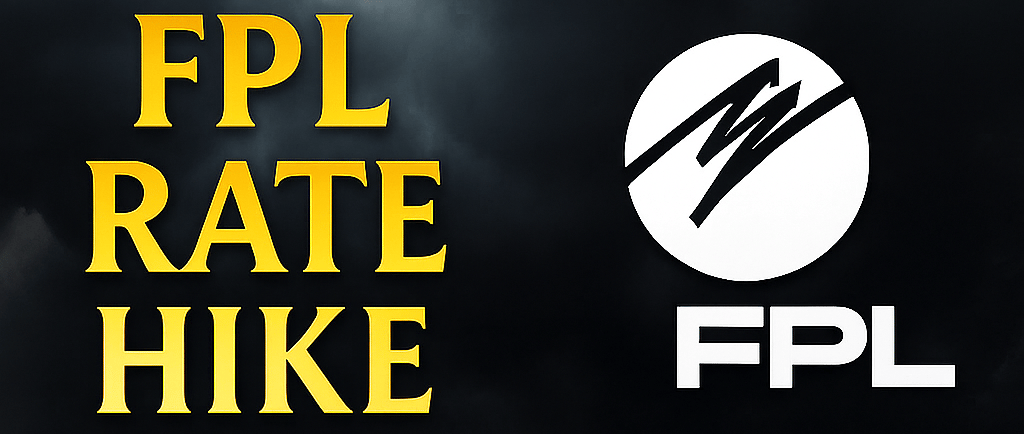Florida Power & Light’s $10B Rate Hike Hearings Delayed Amid Behind-the-Scenes Dealings
Florida Power & Light (FPL) has proposed a historic $10 billion electricity rate hike — but the public hearings meant to scrutinize it have been delayed as the company negotiates a behind-the-scenes settlement with major corporate stakeholders. In this blog, we break down what’s at stake, who’s involved (and who’s not), and why this decision could impact every Floridian’s power bill starting in 2026.
Sunny
8/13/20252 min read


What’s Going On?
FPL filed a request in February 2025 to raise electricity base rates for 2026 through 2029.
This increase would impact 6 million customers across Florida, making it one of the largest utility rate hikes ever proposed in the U.S.
Instead of beginning a two-week series of public hearings, as originally scheduled for August 11, the PSC paused the process so settlement negotiations could continue.
“We are confident that the agreement we reach should enable FPL to continue to make smart investments… while keeping customer bills low,” said Armando Pimentel, FPL’s President & CEO.
Who’s at the Negotiation Table?
FPL announced it had reached an “agreement in principle” with major business interests, including:
Florida Retail Federation
Walmart
Southern Alliance for Clean Energy
Florida Industrial Power Users Group
EVgo Services
Electrify America
Fuel Retailers
Armstrong World Industries
Federal Executive Agencies
These groups, largely representing large-scale electricity users, are key to any utility agreement. Their support gives FPL leverage—but also raises concerns about residential consumer interests being sidelined.
Who's Not Involved?
Notably absent from the settlement negotiations are:
The Office of Public Counsel (which represents consumers)
Community advocacy groups
Watchdogs who previously opposed the rate hike
These groups objected to pausing the hearings, emphasizing that everyday customers deserve transparency and fair representation before major rate changes are approved.
“This is our largest utility provider, there’s a lot of customers. I want to get this right,” said Commissioner Andrew Giles Fay.
Why It Matters
The proposed hike doesn’t just increase rates — it could reshape the cost of living and doing business in Florida for the next four years.
Concerns raised in prior filings include:
Double-charging customers
Excess profit padding
Lack of public transparency
For FPL, the goal is to maintain infrastructure investments and meet future energy demands. But for millions of Floridians, the cost could be too steep—especially if residential voices are excluded from the decision-making.
What Happens Next?
FPL’s legal team suggested a final settlement could be reached in as little as a week and a half. Once finalized, the deal will return to the Public Service Commission for public discussion and approval.
The proposed effective date for the new rates? January 1, 2026.
Final Thoughts
This is a textbook case of corporate strategy vs. consumer advocacy, playing out in Florida’s energy sector. If you're a business owner, homeowner, or renter, keep an eye on this decision—it could directly impact your energy bill for years to come.
The balance between reliable infrastructure and affordable rates is delicate. How this unfolds will set a precedent not just for Florida, but for utilities nationwide.
